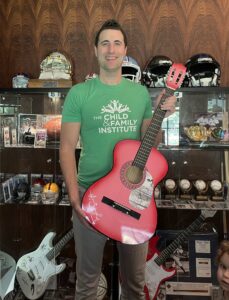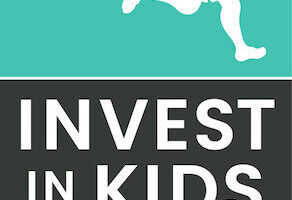
Dr. Adam Weissman has spent years acquiring an enviable collection of sports and music memorabilia.
His trove includes a 1930s baseball signed by Babe Ruth, Lou Gehrig and Joe DiMaggio. A basketball signed by Michael Jordan. A Ringo Starr drumhead. A couple of Taylor Swift guitars.
Weissman, a psychologist from Tarrytown and founder of the Child & Family Institute, decided to use his hobby to launch an initiative called Impact Memorabilia to supply nonprofits with authenticated collectibles for their auctions.
Money raised from the sale of auctioned items gets split between local nonprofits and the Weissman Children’s Foundation, which provides free services to those without access to mental health care.
“I was noticing this was a major pain point for nonprofits,” Weissman said. “They had these galas and auctions, and they had a hard time getting good items. So a big part of starting this was not only to raise money for the children’s foundation so that we could provide more care to more people, but we can partner with other charities. We’re creating a solution for charities to get really good, curated items.”
Impact Memorabilia, Weismann said, is a way to connect his interests in sports, music and collecting.
“Everything in here is auctionable or is purchasable for a donation,” he said of the dozens of items in his personal collection. “There’s nothing in here I wouldn’t part with.”
Impact Memorabilia’s first two auction items — guitars signed by Taylor Swift — went to Shames JCC on the Hudson and Westchester Ballet Company.

Jamie Weiss-Yagoda, Shames’ senior communications director, said the donation “really helped us elevate an important milestone event — a celebration of our new theater and event space, The Ark.”
Amy Harte, president of the Westchester Ballet Company’s board, thanked Weissman for being part of the dance company’s efforts to keep tickets affordable for its annual presentation of The Nutcracker.
Subhead one point size larger: Mental health crisis
Weismann, whose Child & Family Institute has a handful of locations in Westchester, has seen a sharp increase in anxiety, depression and suicidal ideation among youth, especially between 11 and 17 years of age.
“Covid escalated things with social isolation and disconnection,” he said. “I think socialization is a big part of it.”
The lack of in-person classes during the pandemic put a dent in students’ ability to form relationships, Weismann said, leaving them with feelings of avoidance and withdrawal. “So, when we go back to re-engage with society, we’re not as confident in our skills, we’re not as confident just out of lacking engagement in our lives.” Technology and social media are promoting “disconnection from our relationships, from ourselves, from our feelings, from our emotions,” he said.

In addition, he added, “there’s still a lot of stigma with mental illness. People aren’t getting help; people aren’t talking about it. There’s a huge access and equity issue where people can’t access good mental health care.”
Health insurance companies offer limited and complex behavioral health networks with long waiting lists, low reimbursement rates, and overall poor quality of care, Weismann said, as well as expensive fee-for-service private programs.
The Weissman Children’s Foundation draws upon the Child & Family Institute’s therapists, clinical psychologists, social workers and doctoral student externs to offer pro bono/pay-what-you-can mental health services to those who can’t otherwise access care.

In addition to reaching out to the sports and music industries to procure fundraising auction items, Weismann hopes to form partnerships and educational initiatives to reduce the stigma surrounding mental health issues and offer more solutions for those who need care.
For information send email to impactmemorabilia@gmail.com or visit:
childfamilyinstitute.com/weissman-childrens-foundation
childfamilyinstitute.com/connecting-to-care/impact-memorabilia






